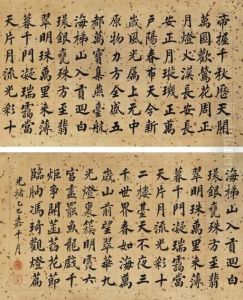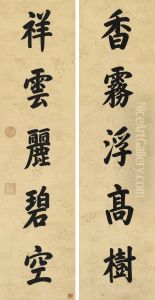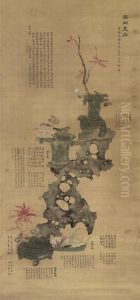Guangxu Paintings
Guangxu, also known as the Guangxu Emperor, was not an artist by the common definition, but rather the eleventh emperor of the Qing Dynasty in China. Born on August 14, 1871, as Aisin-Gioro Zaitian, he was chosen by his aunt, the Empress Dowager Cixi, to ascend to the throne at the tender age of four following the death of his cousin, the Tongzhi Emperor. His reign officially began on February 25, 1875, and lasted until his death on November 14, 1908. However, it is important to note that the Guangxu Emperor never truly held complete control over the government due to the influence and regency of Empress Dowager Cixi.
During his reign, the Guangxu Emperor is known for initiating the Hundred Days' Reform in 1898, a series of radical political and social changes aimed at modernizing China and halting the decline of the Qing Dynasty. These reforms included restructuring the government, modernizing the military, establishing new education systems, and encouraging the development of industries. Unfortunately, these reforms were short-lived; they were abruptly halted by a conservative coup led by Empress Dowager Cixi, who saw them as a threat to traditional Confucian values and her own power. As a result, Guangxu was placed under house arrest for the remainder of his life.
The Guangxu Emperor's legacy is complex. On the one hand, he is seen as a progressive thinker who recognized the need for modernization in China. On the other hand, his inability to implement lasting reforms and the political turmoil that surrounded his reign have led to debates among historians about his effectiveness as a ruler. His death under mysterious circumstances shortly before the death of Empress Dowager Cixi has been the subject of much speculation, with some historians suggesting that he may have been poisoned.
Though the Guangxu Emperor was not an artist, his reign did witness the continuation of traditional Chinese arts, such as painting, calligraphy, and porcelain-making, as well as the introduction of Western art forms and ideas into China. His era was a pivotal moment in Chinese history, marking the twilight of imperial rule and the struggle to find a new identity in the face of Western imperialism and internal pressures for reform.


